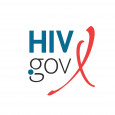During the 2024 Conference on Retroviruses and Opportunistic Infections (CROI) earlier this month, HIV.gov spoke with Bridgette Picou, LVN, ACLPN, Stakeholder Liaison with The Well Project, and Damián Cabrera, Treatment Division Program Manager with NMAC, about their key takeaways from the conference. Watch our conversations with them below:
Whole-Person Focused, Community-Informed Research
Ms. Picou highlighted her work at the Well Project and her role as the Stakeholder Liaison for the organization. During the conversation with HIV.gov, she noted the importance of community and individual engagement. While reflecting on CROI, she shared that after speaking with people from around the world at CROI, she was gratified to find they share her and her colleagues’ vision of a whole-person approach to HIV research that is informed by the community. She also discussed the breastfeeding clinical guidelines, which were updated last year based on research findings. The updated guidelines on Infant Feeding for Individuals with HIV in the U.S. promote greater emphasis on informed, shared decision-making for parents with HIV who have a sustained undetectable viral load.
Community Engagement in Research
Mr. Cabrera observed that it is important for community members to be involved in research conferences to learn about the latest scientific developments and to help inform research studies. He said that this hopefully would help make scientific advancements useful and welcomed by the community. Mr. Cabrera added that a highlight of CROI was seeing not only how evidence on the effectiveness of Doxy-PEP to prevent bacterial STIs continues to accumulate but also real-world data on how the community has been willing to embrace the use of Doxy-PEP.
Catch Up on More CROI Updates
HIV.gov has shared other interviews from CROI 2024 with federal HIV leaders, participating researchers, and community members. You can find all of them on HIV.gov’s social media channels and recapped here on the blog – use the “CROI” topic tag.
About CROI
More than 3,600 HIV and infectious disease researchers from 73 countries gathered in Denver and virtually from March 3-6 this year for CROI, an annual scientific meeting on the latest research that can help accelerate global progress in the response to HIV and other infectious diseases, including STIs and viral hepatitis. Over 1,000 summaries of original research were presented. Visit the conference website for more information. Session webcasts and more information will be published there for public access in early April.
This blog post was published March 19, 2024, on HIV.gov.








Comments
Comments